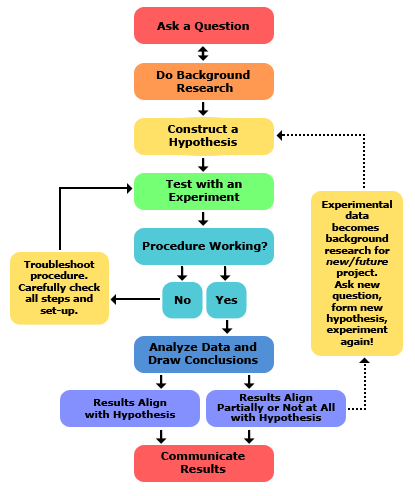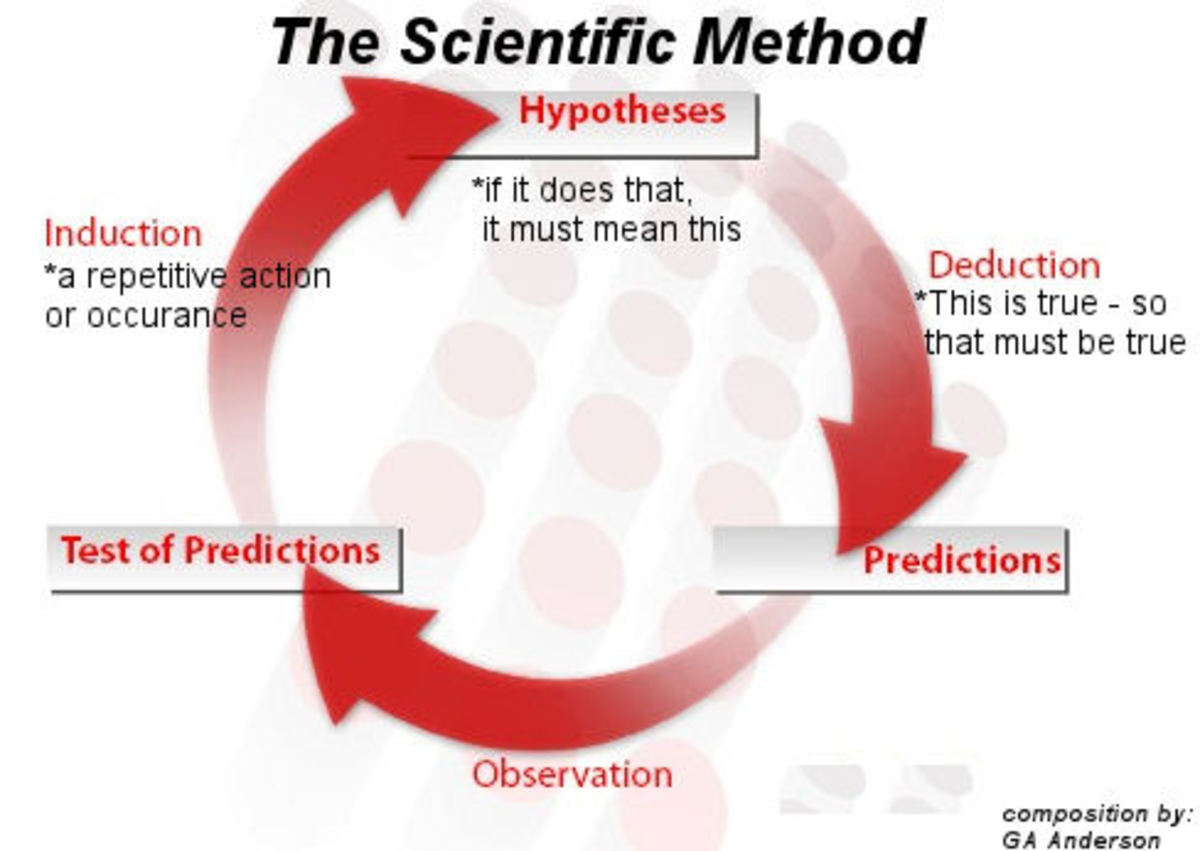What Is The Scientific Method
Scientific Method Defined
The scientific method is a logical thought progression that allows us to think rationally about problems and processes that we observe in the natural world. It is the main tool scientists use in experiment development. It does not matter if the scientist is making medicine or studying wetland ecology, they are using some form of this method to help develop questions and answers to those questions.
Illustrated Scientific Method

Make Observations
The first step in the scientific method is to make observations. We have to stop thinking and just look. This step helps to identify the problem that needs solved or the question that needs answered. Sometimes this step is overlooked but it can be the most important.
Make Predictions
Once your observations are complete and you have a question, it's time to predict the answer. This is called forming a hypothesis. There are different kinds of hypotheses but it would take another article to fully explain those. The main concept to keep in mind is that this prediction has to be testable.
Have You Ever Performed An Experiment
So Have You....
Test Your Hypothesis
Testing that hypothesis the next step. After you pose a hypothesis you must develop an experiment to test that prediction. In an experiment you always want to have two groups at the very least. One group will serve as a control while the other group is the one your experiment on. The control group will experience all of the same conditions as the experimental group minus the fact that they won't be exposed to the experiment.
For example, I am curious if herbicide kills microscopic pond life. I would have two groups of pond life in my lab under the same conditions except one group would be exposed to the herbicide and one group would not. This gives an experiment validity.
Analyze Results
The next step in the scientific method is to analyze your results. In the experiment outlined above, if all of the microscopic animals exposed to herbicide died and the control group lived, it would be possible that the herbicide caused the deaths. If both groups die. no final conclusion could be made about the effects of herbicide on these organisms. During this process of the scientific method, it is common to create more questions. It happens more often than it doesn't.
Draw Conclusions
At the end, it is time to make conclusions. This is your attempt to explain why your results came out like they did. It is also your time to figure out why they are so important and why they may be important in the future.
Great Sources For Experiments
- Ice Science Projects for the Classroom
Teach children about the different states of matter and how objects can shift between these different state using ice. Ice cubes work great for science projects since they are so readily available and easy to replace. You can also use dry ice in... - Science Projects and Experiments for Kids
Science projects should test a hypothesis. A hypothesis is a statement of scientific fact that can be tested by an experiment. Experiments that involve living things are always interesting because they are dynamic and changes that result from... - Really Cool Science Projects for Halloween
An article about really cool science projects for Halloween. - Weather Related Science Projects for Kids (and their...
This is dedicated to science projects for kids and the rest of the family, to help with understanding weather and other aspects of meteorology. These are all weather experiments and projects that you can make freely on your own. I think they would... - Insect Science Projects
Easy insect science projects that are fun for the whole family.








